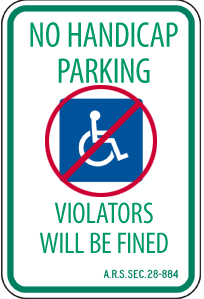A really powerful set of articles in The Guardian today.
Starting off with War on drugs: why the US and Latin America could be ready to end a fruitless 40-year struggle by Rory Carroll and Paul Harris
Mexico’s president Felipe Caldéron is the latest Latin leader to call for a debate on drugs legalisation. And in the US, liberals and right-wing libertarians are pressing for an end to prohibition. Forty years after President Nixon launched the ‘war on drugs’ there is a growing momentum to abandon the fight
It’s a pretty good discussion about recent political and drug war developments in the Americas.
Even better is the extremely strong and stinging piece against prohibition by the editorial board:
A unique chance to rethink drugs policy
If the purpose of drug policy is to make toxic substances available to anyone who wants them in a flourishing market economy controlled by murderous criminal gangs, the current arrangements are working well.
If, however, the goal is to reduce the amount of drugs being consumed and limit the harm associated with addiction, it is surely time to tear up the current policy. It has failed.
This is not a partial failure. For as long as courts and jails have been the tools for controlling drugs, their use has increased. Police are powerless to control the flow. One recent estimate calculated that around 1% of the total supply to the UK is intercepted.
Attempts to crack down have little impact, except perhaps in siphoning vulnerable young people into jails where they can mature into hardened villains.
When a more heavyweight player is taken out, a gap opens up in the supply chain which is promptly filled by violent competition between or within gangs. Business as usual resumes. […]
It is far from certain that decriminalisation, regulation or legalisation would work. But they should be examined as options, for it is absolutely certain that prohibition has failed.
Wow. The trifecta finishes off with Drugs: the problem is more than just the substances, it’s the prohibition itself by Maria Lucia Karam, a retired judge in Brazil and board member of Law Enforcement Against Prohibition.
Violence is not necessarily related to drugs. As the alcohol or tobacco businesses demonstrate, the production and supply of drugs are not inherently violent activities. Weapons and violence only accompany those activities when undertaken in an illegal market. The prohibition yields the violence, as disputes must be settled out of court and on the streets. Paradoxically, when we prohibit these widely used substances, we are actually relinquishing meaningful control over them.
Prohibition consigns the drug market to criminalised actors not subject to oversight of any kind. Legalisation would mean regulation and regulation is the best way to control the dangers of drug use, while cutting the cartels off at the knees. […]
Latin America is advancing the debate, but even in the US there are efforts to undo the damage of prohibition, the most prominent being California’s effort to legalise marijuana.
Hopefully, the thousands of Mexicans, Brazilians and people from other parts of the world who have been killed in the insane “war on drugs” will not have died in vain. Their deaths are already showing that it is time to put an end to all the pain and harms caused by drug prohibition; it is time to legalise and regulate the production, the supply and the consumption of all drugs.

 My, that certainly is a provocative question. Is Roger Salazar channeling funds to terrorists? Is he, in fact, providing money laundering services for terrorists? These are real questions, based on absolutely nothing, that I feel that I need to put in front of the public, so they can think about it.
My, that certainly is a provocative question. Is Roger Salazar channeling funds to terrorists? Is he, in fact, providing money laundering services for terrorists? These are real questions, based on absolutely nothing, that I feel that I need to put in front of the public, so they can think about it. Some oppose medical marijuana because patients who aren’t that sick can still get a doctor’s note.
Some oppose medical marijuana because patients who aren’t that sick can still get a doctor’s note.